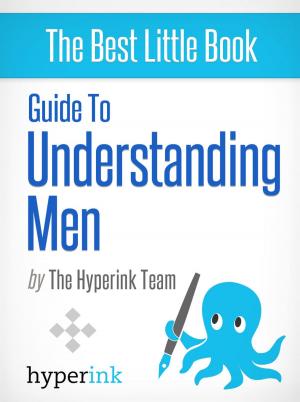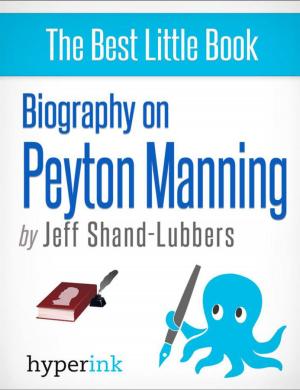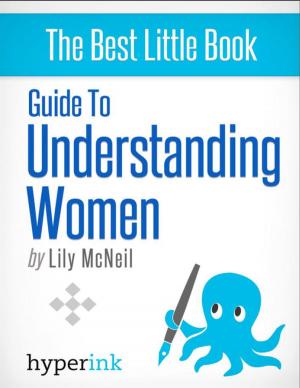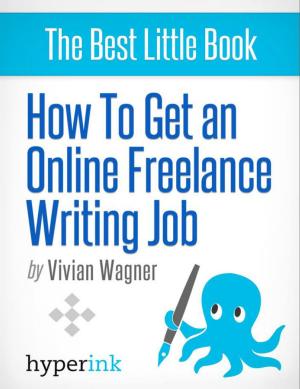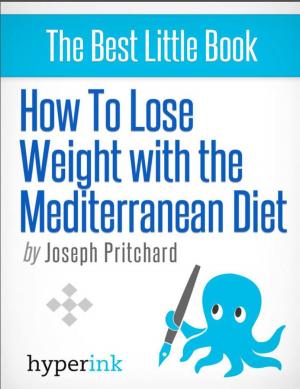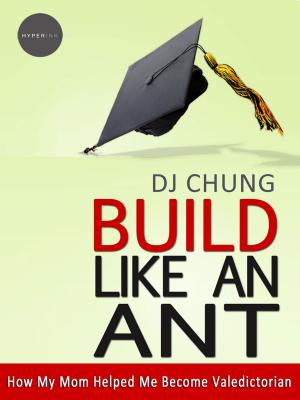How to Lose Weight with a Gluten-Free Diet
Nonfiction, Reference & Language, Reference, Guides & Handbooks| Author: | Lily McNeil | ISBN: | 9781614645443 |
| Publisher: | Hyperink | Publication: | March 2, 2012 |
| Imprint: | Hyperink | Language: | English |
| Author: | Lily McNeil |
| ISBN: | 9781614645443 |
| Publisher: | Hyperink |
| Publication: | March 2, 2012 |
| Imprint: | Hyperink |
| Language: | English |
ABOUT THE BOOK
“Gluten-free” seems to be all the rage these days. As diagnoses of gluten sensitivity and the autoimmune disorder Celiac disease have increased, more and more restaurants are offering gluten-free options, some supermarkets have aisles dedicated to the stuff, and even national coffee shop chains have jumped on the gluten-free bandwagon. Even people without allergies have begun to eschew gluten, citing improved digestion, clearer thinking, and better moods.
So what’s the deal with “gluten-free”? What does it mean? Is it just a gimmick? Or is it a healthful eating choice? And here’s the big question: can you lose weight by adopting a gluten-free diet?
All these questions will be answered in this guide, but let’s get the biggie out of the way: yes, you can lose weight by adopting a gluten-free diet. You can also, however, gain weight on a gluten-free diet. Ditching the gluten is not a dieting “Get Out of Jail Free” card. Switching out wheat and other gluten-containing foods can help your body streamline its fat-burning processes and improve your overall health, but it’s not a magic bullet. Gluten-free foods can contain just as much sugar, fat, artificial preservatives, and other “bad” stuff as their “normal” counterparts.
MEET THE AUTHOR
Lily is very close to finishing her Ph.D. at the University of Oxford. She also has an utterly non-lucrative Masters of Fine Arts in poetry. "Lily McNeil" is a pseudonym.
EXCERPT FROM THE BOOK
Although Celiac disease affects less than 1% of the population, it is a serious autoimmune condition that is triggered by eating the gluten protein. In response to the protein, the small intestine destroys its own villi, which are responsible for absorbing nutrients from food. Without these nutrients, the body becomes severely malnourished.
That’s where a gluten-free diet comes in. Those who have Celiac disease must adhere to a very strict diet of no gluten whatsoever, even in vitamin pills and lip balm. But even if you don’t have Celiac disease or a severe intolerance to gluten, cutting it out of your diet can help you feel better. And if you reduce your consumption of cookie, cake, and bread alternatives and increase the amount of vegetables and fruits you eat, you will lose weight.
Fittingly, some doctors are beginning to advocate for not only a gluten-free diet, but for a major reduction in all refined wheat products and other carbohydrates. Cardiologist Dr. William Davis, author of Wheat Belly, argues that wheat and other grain-based carbohydrates are responsible for a whole host of health problems, especially weight gain. In a discussion about our society’s “addiction” to wheat products, Dr. Davis says that wheat...
Buy a copy to keep reading!
ABOUT THE BOOK
“Gluten-free” seems to be all the rage these days. As diagnoses of gluten sensitivity and the autoimmune disorder Celiac disease have increased, more and more restaurants are offering gluten-free options, some supermarkets have aisles dedicated to the stuff, and even national coffee shop chains have jumped on the gluten-free bandwagon. Even people without allergies have begun to eschew gluten, citing improved digestion, clearer thinking, and better moods.
So what’s the deal with “gluten-free”? What does it mean? Is it just a gimmick? Or is it a healthful eating choice? And here’s the big question: can you lose weight by adopting a gluten-free diet?
All these questions will be answered in this guide, but let’s get the biggie out of the way: yes, you can lose weight by adopting a gluten-free diet. You can also, however, gain weight on a gluten-free diet. Ditching the gluten is not a dieting “Get Out of Jail Free” card. Switching out wheat and other gluten-containing foods can help your body streamline its fat-burning processes and improve your overall health, but it’s not a magic bullet. Gluten-free foods can contain just as much sugar, fat, artificial preservatives, and other “bad” stuff as their “normal” counterparts.
MEET THE AUTHOR
Lily is very close to finishing her Ph.D. at the University of Oxford. She also has an utterly non-lucrative Masters of Fine Arts in poetry. "Lily McNeil" is a pseudonym.
EXCERPT FROM THE BOOK
Although Celiac disease affects less than 1% of the population, it is a serious autoimmune condition that is triggered by eating the gluten protein. In response to the protein, the small intestine destroys its own villi, which are responsible for absorbing nutrients from food. Without these nutrients, the body becomes severely malnourished.
That’s where a gluten-free diet comes in. Those who have Celiac disease must adhere to a very strict diet of no gluten whatsoever, even in vitamin pills and lip balm. But even if you don’t have Celiac disease or a severe intolerance to gluten, cutting it out of your diet can help you feel better. And if you reduce your consumption of cookie, cake, and bread alternatives and increase the amount of vegetables and fruits you eat, you will lose weight.
Fittingly, some doctors are beginning to advocate for not only a gluten-free diet, but for a major reduction in all refined wheat products and other carbohydrates. Cardiologist Dr. William Davis, author of Wheat Belly, argues that wheat and other grain-based carbohydrates are responsible for a whole host of health problems, especially weight gain. In a discussion about our society’s “addiction” to wheat products, Dr. Davis says that wheat...
Buy a copy to keep reading!





